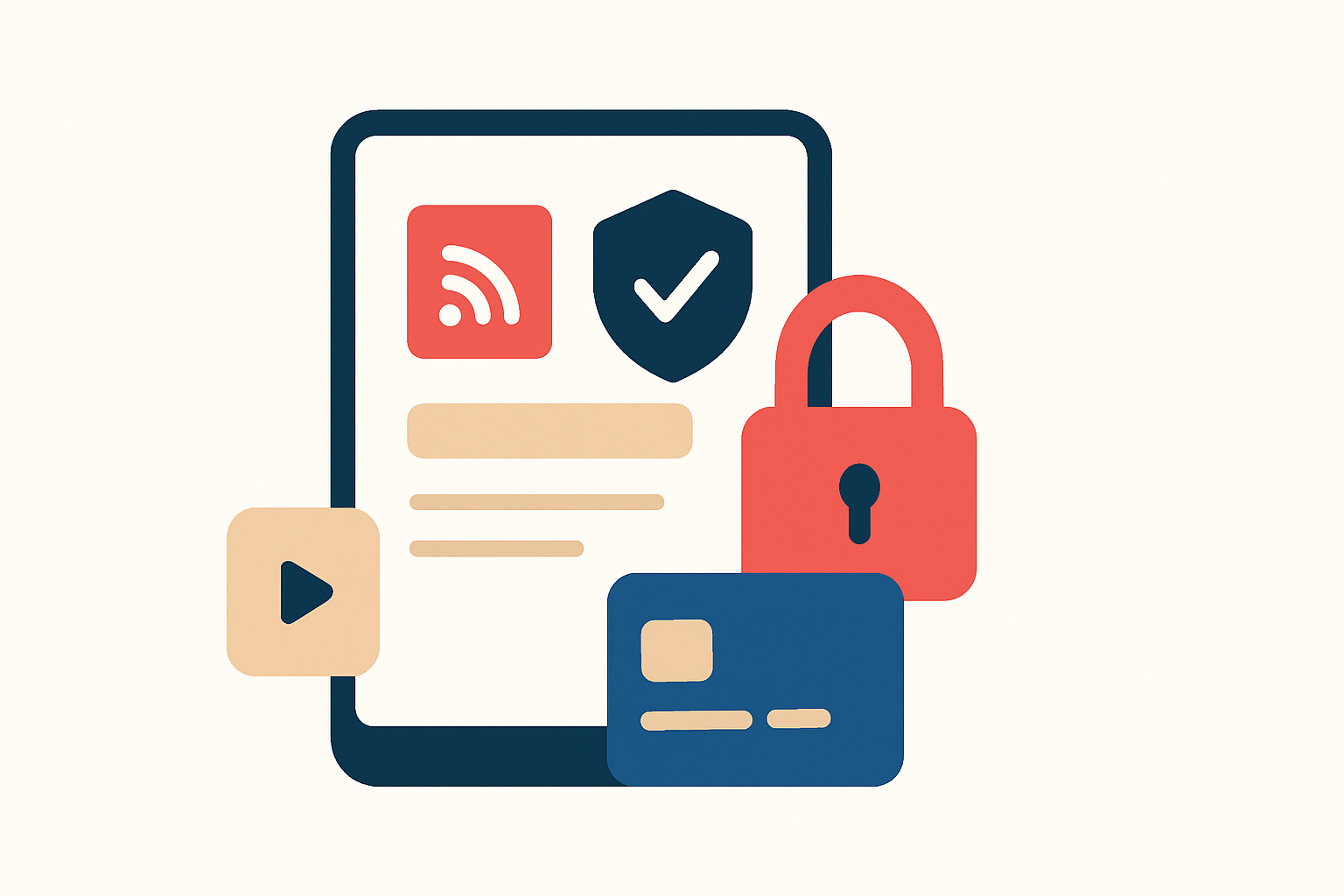SCA Rules Made Simple for Subscription Payments

Many subscription businesses struggle to navigate the complexities of Strong Customer Authentication (SCA). With new rules under the PSD2 directive, recurring payments now require compliance steps that can impact both customer experience and revenue continuity. This article provides a clear explanation of SCA regulations, what they mean for subscription-based services, and how businesses can stay compliant while maintaining seamless payment flows.
At Audiorista, we enable creators and educators to launch subscription-based apps with payment security built-in. Our no-code platform is designed to ensure compliance with SCA requirements while making it simple for businesses to offer secure recurring subscriptions. In the sections below, we’ll cover the fundamentals of SCA, its impact on recurring billing, and best practices to ensure compliance without adding friction for subscribers.
Understanding strong customer authentication
Strong Customer Authentication, commonly known as SCA, was introduced as part of the revised EU Payment Services Directive (PSD2). Its purpose is to make electronic payments more secure by requiring an additional layer of customer verification. Specifically, SCA requires two-factor authentication to reduce fraud risk when customers make online payments.
By combining at least two factors—something the customer knows, something the customer has, or something the customer is—SCA strengthens payment security. The regulation was created to protect consumers while ensuring a safer digital economy. For businesses operating subscription models, understanding this authentication requirement is essential to maintaining continuity in billing cycles.
The impact on subscription payments
When it comes to recurring payments, SCA applies differently compared to one-time transactions. For subscriptions, the initial setup of the recurring payment often requires full SCA verification. Once that’s in place, subsequent recurring charges can be processed without repeated authentication, provided these payments meet specific exemption criteria.
This exemption is what allows subscription businesses to collect recurring payments without customers needing to authorize every charge. However, challenges arise when certain transactions fall outside these rules, such as when the payment amount varies or when a card requires re-authentication after a certain time frame. Businesses must be mindful of these factors to avoid failed payment attempts that disrupt service access for customers.
Ensuring compliance with PSD2
Under PSD2 regulations, subscription merchants must ensure that their payment processes meet SCA requirements. This means integrating secure payment flows that authenticate subscribers at the right moments while leveraging exemptions that reduce friction in billing.
In practice, compliance for subscription businesses involves making sure that initial sign-ups trigger proper authentication and that recurring charges remain structured in a way that qualifies for exemption. This reduces unnecessary disruptions and keeps payments consistent.
Audiorista was built with these requirements in mind. By integrating secure subscription setups, our platform simplifies PSD2 compliance for content creators, educators, and media publishers. With built-in payment integrations and automated compliance features, Audiorista ensures businesses can focus on audience growth rather than managing the technical and regulatory complexity of authentication.
Best practices for recurring payments
Minimizing disruptions from SCA requirements comes down to implementing practical strategies that balance compliance with a smooth subscriber experience. Here are some best practices to keep in mind:
- Design payment flows that include SCA verification at initial subscription sign-up, so subsequent recurring charges qualify for exemptions without repeated authentication.
- Partner with platforms that support SCA-ready subscription billing and handle secure authentication in compliance with PSD2 requirements.
- Communicate clearly with customers during authentication processes to build trust and reduce drop-offs during sign-up.
- Monitor recurring payments regularly to quickly identify and address failed authentication scenarios before they impact large groups of subscribers.
Why choosing the right platform matters
Compliance with subscription security rules isn’t just a matter of checking boxes—it directly affects customer satisfaction and revenue stability. By using a platform like Audiorista, creators and educators can launch SCA-compliant services without having to build or manage complex payment infrastructures themselves.
For instance, our secure subscription solutions for educators allow teachers and course creators to deliver content through branded apps with integrated payment security and seamless user experiences. This eliminates the risk of failed payments caused by non-compliance while offering a smooth experience for learners.
For those building digital education products, we also provide step-by-step resources on turning your online course into a subscription app. With the right setup, educators and publishers can focus on content and audience growth while ensuring payments remain both secure and compliant under SCA rules.
Ultimately, choosing a platform that streamlines both compliance and customer experience ensures businesses won’t face recurring payment issues that reduce subscriber trust or disrupt revenue streams.
Staying on top of SCA rules is essential for every subscription-based business. In this article, we’ve broken down what Strong Customer Authentication is, how it affects recurring billing, and how you can ensure compliance with PSD2. If you want to keep your subscriptions running smoothly without failed payments, choosing the right platform is critical—Audiorista can help you launch secure, subscription-ready apps seamlessly.
Launch your subscription app with built-in payment security—get started with Audiorista today.


